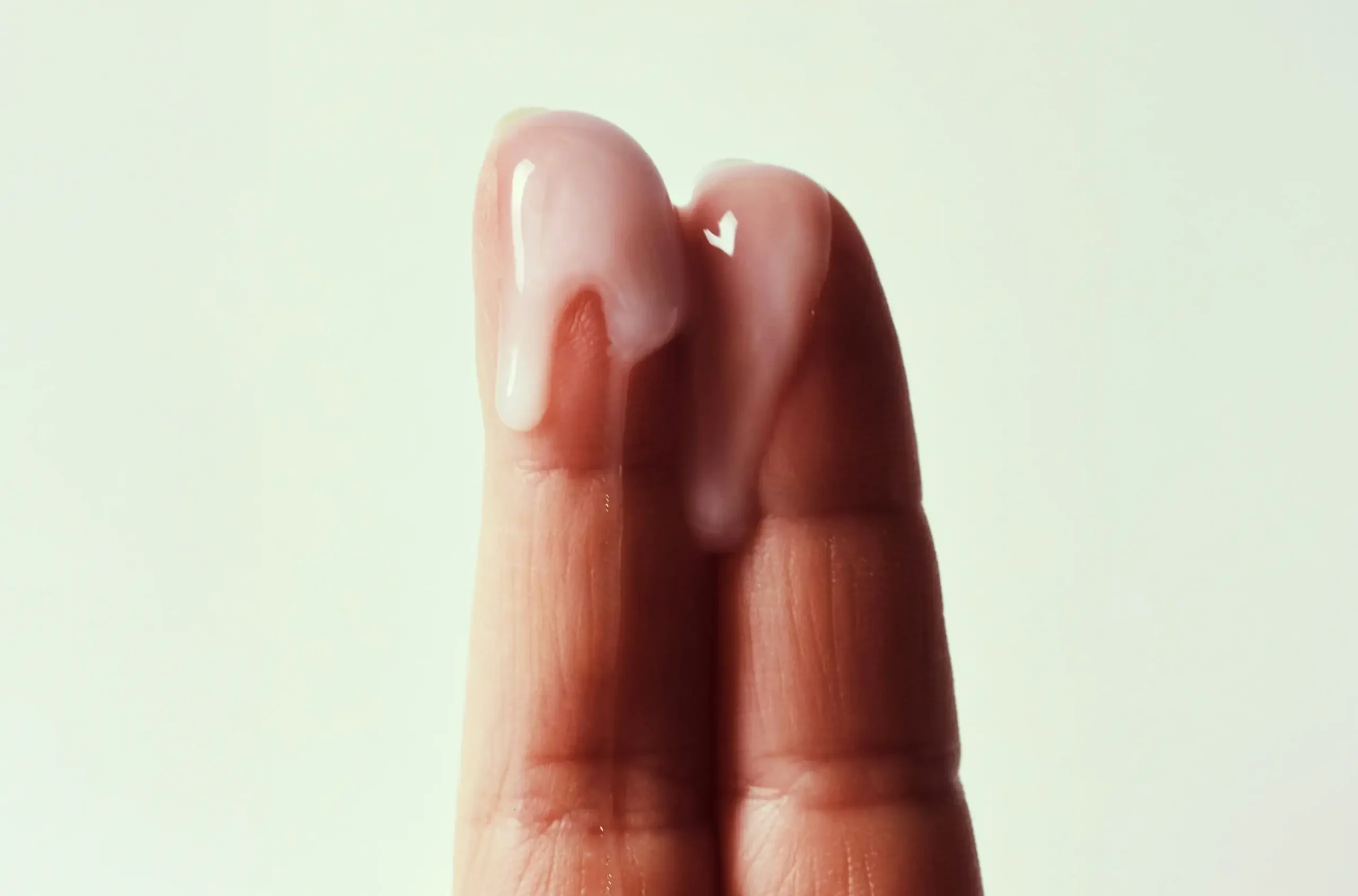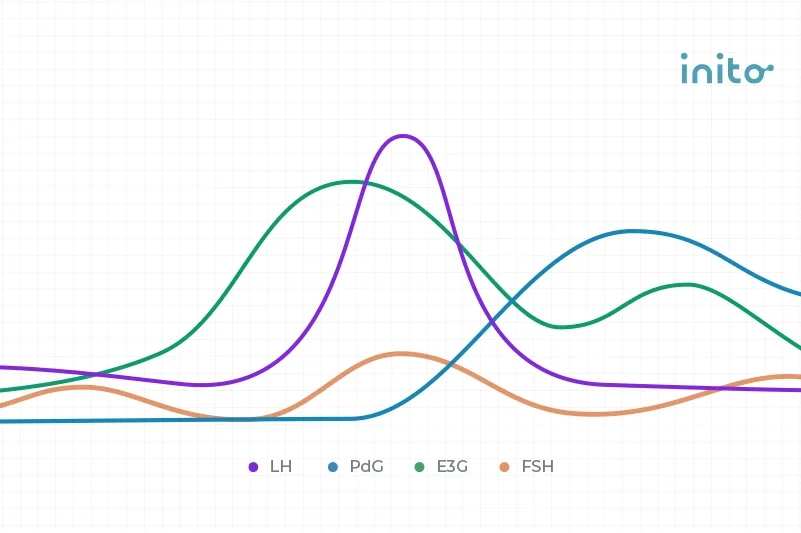Content table
Perimenopause is the transition from your reproductive years to menopause (when you no longer have periods). For many women, this change can be mentally and physically exhausting.
If you’re burnt out and struggling to get up and go, you may brush it off as your new normal. However, perimenopause can be the reason you’re so fatigued. Fortunately, treatment and lifestyle changes can help put some pep back in your step during the menopause transition.
Takeaways
- Perimenopause fatigue is a feeling of excessive tiredness during perimenopause. It can extend into menopause as well.
- Around 67% of perimenopausal women report feeling fatigued.
- Perimenopause can lead to fatigue in a few ways.
- Hot flashes and night sweats may keep you up at night, leading to excessive tiredness during the daytime.
- Natural fluctuations in cortisol levels may also contribute to fatigue.
- Additionally, life stressors during this period such as a demanding job or taking care of children or older adults can contribute to fatigue.
- Lifestyle changes can help combat perimenopause fatigue – make sure to eat healthy, exercise, maintain good sleep hygiene, and destress.
- Supplements or hormone replacement therapy may offer relief from perimenopause fatigue and help you cope with other symptoms as well.
What is perimenopause fatigue?
Key point: Perimenopause fatigue is a feeling of tiredness during the transition to menopause.
Perimenopause is the stage just before menopause. It’s the natural transition between your reproductive years to the time when natural pregnancy is no longer possible.
Lots of changes happen during perimenopause, including hormonal fluctuations. Estrogen levels go down, affecting the body and brain. Irregular or missed periods are usually the main sign of perimenopause. Once you go an entire year without a menstrual period, menopause has officially set in.
Fatigue is common during perimenopause. It may be related to hormone changes or other factors. Women may describe fatigue as:
- Lack of motivation or drive
- Mental or physical exhaustion, even at rest
- Overwhelming feelings of tiredness
- Trouble keeping up with everyday tasks
- Weariness
Most women can expect perimenopausal fatigue and other symptoms to start during their 40s. In some cases, fatigue starts earlier.
If menopause wasn’t even on your radar, you may be wondering why you’re so tired. Learning to recognize perimenopausal fatigue can help point to solutions to reboot your energy levels.
Is fatigue a symptom of perimenopause?
Key point: Fatigue is a common symptom of perimenopause.
For many women, perimenopause and fatigue go hand-in-hand.
Around 67% of perimenopausal women reported fatigue. Another study found that 46.5% of women reported physical and mental exhaustion, compared to just 19.7% of younger women.
And sometimes, this may also be a sign of oncoming fatigue in menopause. But getting help for this symptom when it starts can help you get a handle on it.
Along with feeling tired, women with perimenopause fatigue may also experience menopausal symptoms like:
- Back pain
- Brain fog or difficulty
- concentrating
- Depressed mood
- Forgetfulness
- Heart palpitations
- Hot flashes on the face
- Night sweats
- Numbness on hands and feet
- Reduced sex drive
- Soreness
- Trouble sleeping
Know more: Can You Get Pregnant During Perimenopause?
Does perimenopause cause fatigue?
Key point: Perimenopause can indirectly cause fatigue.
Yes, perimenopause can cause fatigue in a few different ways.
Crashing fatigue can be related to the demands of daily life or another health condition. Nonetheless, the symptoms of perimenopause can leave you feeling overtired, especially if night sweats or hot flashes are keeping you up at night.
Hot flashes and fatigue may be related. During perimenopause, decreased estrogen levels affect the body’s natural thermostat (the hypothalamus). As a result, the body thinks it’s hotter than it actually is.
In response to overheating, blood vessels near the skin’s surface widen, and you start sweating to cool down. Hot flashes that happen at night and lead to profuse sweating are called night sweats. Night sweats contribute to sleep trouble, which can keep you up at night and cause fatigue during the day.
Starting at age 30, cortisol levels increase. Cortisol is a stress hormone. It affects the sleep-wake cycle and may be related to hot flashes and sleep disturbances. Studies show that perimenopausal women experience cortisol ups and downs throughout the night that impact sleep.
Perimenopause also affects the menstrual period. Some women have lighter and less frequent periods, especially towards the end of perimenopause. Others get their periods more often and bleed heavier. This can lead to iron deficiency anemia, which causes fatigue.
Heavy periods can be a serious concern if:
- Bleeding continues for nine days or more
- Pads and tampons that need changing every hour
- You have spotting between periods
- Your cycle is regularly 21 days or shorter
In addition, mood changes during perimenopause can be a source of stress and fatigue. For example, depression that makes you feel worn out and disinterested or anxiety that leaves you tense and awake at night. It’s not always just perimenopause that’s responsible for mood changes. Other stressors, such as aging parents, relationship stress, financial worries, or job changes, can also play a role.
Perimenopause fatigue treatment options
Key point: Medications and supplements can help with perimenopausal fatigue.
Be sure to discuss changes in your energy levels with your doctor. Even something as simple as fatigue could signal an underlying health problem that needs treatment. If you’re suddenly feeling a lot more tired than usual, it’s time to do some investigating.
Let your doctor know if you have any other symptoms of perimenopause along with fatigue, such as changes to your period. It helps to keep a written log of when your period starts and stops, along with notes about how heavy it is and whether you have spotting. You can also track your symptoms on the free Inito app and take them to your doctor to identify any patterns or trends in your cycles.
Your healthcare provider can share different ways to help you cope with the change of life. Hormone replacement therapy (HRT) treats perimenopausal symptoms like fatigue. Doctors may prescribe estrogen or a combination of estrogen and progesterone.
Finally, you may need a blood test to check your iron levels, especially if you have heavy periods and fatigue. An iron supplement can help if your levels are too low.
Fighting back against perimenopause exhaustion
Key point: Lifestyle changes can help combat perimenopause fatigue.
Lifestyle changes can boost your energy levels whether you take medication for perimenopause symptoms or not.
Perimenopause is a good time to focus on:
- Healthy eating
- Regular exercise
- Sleep habits
- Stress management
Pay closer attention to how your body feels based on what you do. For instance, if caffeine or alcohol leads to hot flashes and poor sleep quality, work on cutting back. You can meet with a registered dietitian to help design a well-balanced diet that meets your needs.
Finding the energy for physical activity when you have extreme tiredness can seem like an impossible task. But even a few minutes of movement a day can get the momentum going. And it plays a big role in improving your sleep and mood.
It’s OK to say no and set boundaries when you’re dealing with fatigue. You may need to cut back on your responsibilities to find time for yourself and get to bed on time. Consider alternative therapies and relaxation techniques to help get your energy back.

FAQs
There’s no set amount of time for perimenopause. Every woman is different, but it typically lasts an average of four years. Sometimes, the symptoms of perimenopause are so subtle that you don’t even know it’s happening. Perimenopause starts gradually as your hormone levels shift and affect your menstrual cycle. It ends with menopause, which is when you’ve been without a period consistently for 12 months.
Yes, perimenopause causes fatigue for some women. Perimenopause changes the body and brain in different ways that contribute to fatigue. Hormone changes in perimenopause can cause hot flashes at night (night sweats) that disrupt sleep. Perimenopause also impacts mood and can make you feel more tired. For many women, perimenopause happens during a time of life that’s stressful, demanding, and exhausting.
Perimenopause fatigue can be mild or severe. Mild fatigue may feel like you have low energy. You may be less motivated and more lethargic. Extreme fatigue can make it hard to get out of bed in the morning. You may struggle to keep up with work and daily life responsibilities.
Fatigue causes mental and physical changes. You may feel heavy, like you’re dragging. You may also have a harder time thinking straight and focusing. It can reduce your interest in physical activity, promoting unhealthy habits and weight gain.
Menopause affects everyone differently. But fatigue is one of the most common menopause symptoms. Menopause fatigue affects almost 68 percent of menopausal women. It may be mild or turn into extreme tiredness.
Yes, fatigue can be a symptom of low estrogen. Estrogen levels naturally decrease in perimenopause and menopause. This hormone shift causes mood swings, hot flashes, sleep disruption, and night sweats, which contribute to fatigue.
Was this article helpful?
- Low Estrogen Levels in Menopause | University of Rochester Medical Center
- Perimenopause | Canadian Medical Association Journal
- About Heavy Menstrual Bleeding | Centers for Disease Control and Prevention
- The Perimenopausal Fatigue Self-Management Scale Is Suitable for Evaluating Perimenopausal Taiwanese Women’s Vulnerability to Fatigue Syndrome | Healthcare
- Iron – Fact Sheet for Health Professionals | National Institutes of Health, Office of Dietary Supplements
- Mood Changes During Perimenopause Are Real. Here’s What to Know. | The American College of Obstetricians and Gynecologists
- Management of the Perimenopause | Clinical Obstetrics and Gynecology
- Hot Flashes: What Can I Do? | National Institute on Aging
- Sleep Problems and Menopause: What Can I Do? | National Institute on Aging
- Cortisol Levels during the Menopausal Transition and Early Postmenopause: Observations from the Seattle Midlife Women’s Health Study | Menopause












